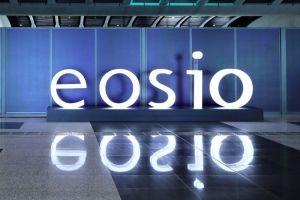EOS Hits Back Against Claims it’s ‘Not a Blockchain’
“Whiteblock seems to have failed to vet their findings with a subject matter expert, prior to publishing their research.” “We remain believers that both the Ethereum and EOS.IO communities are deeply valuable proponents in the blockchain ecosystem.”

EOS is not a blockchain. Or so claimed a recent study from Whiteblock, “the world’s first blockchain testing company.”
It based this conclusion on several sub-conclusions, such as that EOS’ “distributed homogeneous database management system” is not cryptographically validated, and that it “suffers from consensus failures.”
However, while such conclusions are potentially damning for EOS, the EOS community rejects them, not least because Whiteblock’s tests were led by key individuals at ConsenSys, the blockchain software firm, which has close links with EOS’ main rival, Ethereum.
And as EOS block producer EOS Hong Kong (HKEOS) explains to Cryptonews.com, this isn’t the only questionable aspect of Whiteblock’s report.
Explicit states and Patricia Merkle Trees
“WhiteBlock’s ‘study’ seems to justify [its] conclusion by defining blockchain specifically [in terms of] attributes native to Ethereum,” argues the HKEOS team.
Explaining that the Ethereum blockchain differs in how it confirms state transitions (which describe how user accounts change following transactions), the EOS block producer is alluding here to how Ethereum manages this by storing its ‘world state’ explicitly (rather than by ‘implicitly’ using a cumulative sum of received amounts).
“However, neither Bitcoin nor EOS.IO does it in this particular way,” the team adds. “In fact, under WhiteBlock’s definition, several commonly accepted ‘blockchains’ would not qualify.”
Noting another difference between the Ethereum and EOS blockchains, HKEOS admits that “it is true that the EOS.IO does not commit to the materialized persisted state through perhaps, a Patricia Merkle Tree.”
“That said, to argue EOS.IO is “not a blockchain”, on the premise that it has not implemented some features that are specific to Ethereum’s protocol, is at a minimum, misleading,” the team says. “If we accept that Bitcoin [which also doesn’t use Patricia Merkle Trees] is an application of blockchain; then we at HKEOS would argue that one must also accept EOS.IO is a blockchain. Hence, in our view, the statement from WhiteBlock is no more than an unsubstantiated opinion.”
Not peer-reviewed
However, HKEOS takes issue less with possible bias in favor of Ethereum, and more with the claim that Whiteblock supposedly didn’t interview or consult with anyone intimate with EOS’s inner workings for the purposes of its study.
“It appears the ‘researchers’ did not understand, interview or collaborate with anyone who understood EOS.IO code base,” the team says.
“Whiteblock seems to have failed to vet their findings with a subject matter expert, prior to publishing their ‘research’. In our view, Whiteblock’s ‘research’ does not appear to offer a substantive and complete piece of work, with credible sources or expertise.”
HKEOS also claim that the study is further weakened by errors and inaccuracies. “Their findings appear to be rife with misrepresentation (eg. modifications are not performed on the blocks, as stated in their research), which in itself discredits the publication.”
Decentralization?
One other big claim made by Whiteblock’s research – and one that has followed EOS around since its launch – is that the EOS blockchain “is not truly decentralized.” Unsurprisingly, this is also something that the EOS community disputes.
“This is often the subject of debate within the crypto community,” HKEOS tells us. “Yes, EOS.IO mainnet is governed so that significant system-level changes must go through a referendum, where token holders vote on proposals. That said, we [believe] this overlay ultimately benefits the wider EOS.IO community at large. EOS.IO leverages on a democratic delegated proof of stake(DPoS) consensus, in an effort to constitute a transparent and fair environment.”
Unfortunately, HKEOS were unable – due to apparent time constraints – to address the claim that the EOS blockchain lacks Byzantine Fault Tolerance (which relates to the ability of a network to detect and react to bad actors), a claim which has also been made elsewhere.
However, the team ultimately affirms its view that Whiteblock’s research is “at best an incomplete and unsubstantiated opinion.” It arrives at this conclusion largely due to the study’s lack of outside input, adding that it believes “it may be overreaching to suggest [that the study] was a deliberate smear or that it had any direct association with Ethereum; it merely seems the authors (and those overseeing) failed to apply a thorough vetting.”
And in concluding its EOS defence, HKEOS ends by extending an olive branch towards Ethereum and its community: “We remain believers that both the Ethereum and EOS.IO communities are deeply valuable proponents in the blockchain ecosystem. In our opinion, fostering the alignment of these communities will serve to lay solid foundations for future development.”




